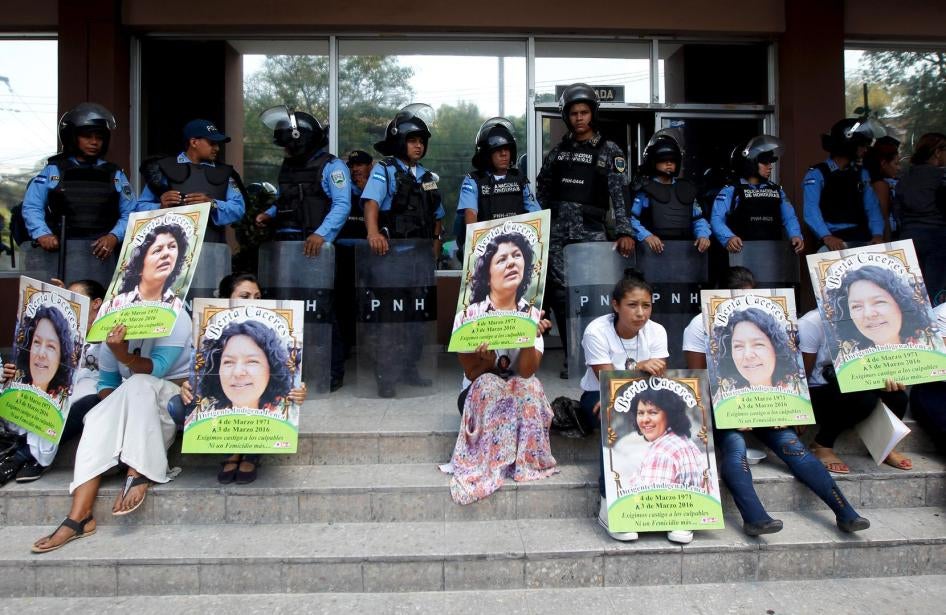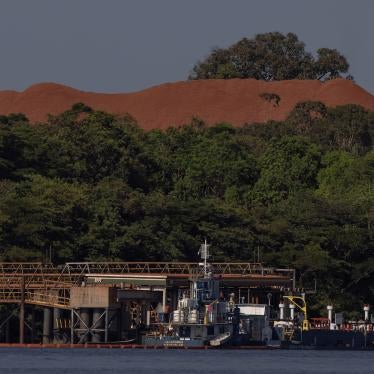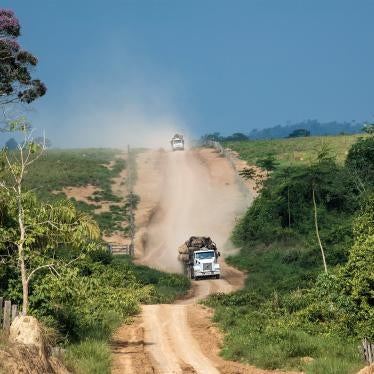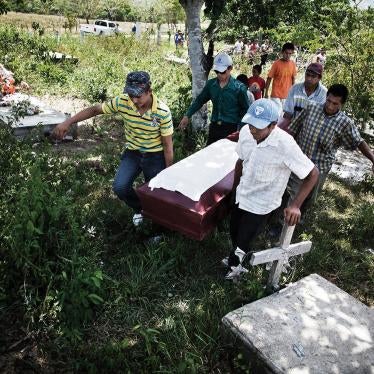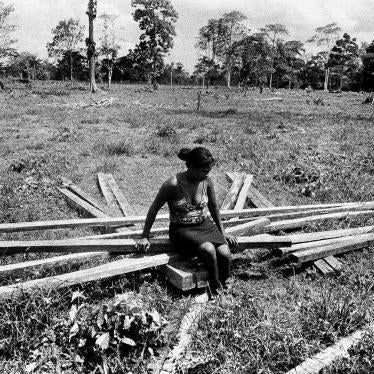(New York) – Honduran authorities should carry out a prompt, thorough, and impartial investigation into the killing of two land rights activists of the Unified Peasant Movement of Aguán (MUCA), Human Rights Watch said today. The government should take urgent steps to end impunity for attacks against land rights and environmental defenders.
On October 18, 2016, unidentified men gunned down José Ángel Flores and Silmer Dionisio George, Honduran land rights activists, as they left a meeting in Tocoa, in the Caribbean coastal department of Colón, media accounts said. The two activists were subject to protective measures issued by the Inter-American Commission on Human Rights (IACHR), which in May 2014 ordered the government to ensure the safety of leaders of several peasant movements in Honduras.
“Honduras has an obligation to ensure that land rights and environmental activists can do their jobs without fear of reprisals,” said José Miguel Vivanco, Americas director at Human Rights Watch. “When acts that appear to be violent retaliation go unpunished, it sends the disturbing message that the government may tolerate such violent abuses.”
Honduras is a dangerous country for environmental and land rights activists. The IACHR has repeatedly called for the government to protect people who experience intimidation and death threats because of their work as environmental defenders.
Flores was the president of MUCA, a land rights organization that has brought legal actions on behalf of farmers in the region known as Bajo Aguán. The farmers contend that, during the past 20 years, thousands of hectares of land have been transferred illegally to large-scale businesses that produce palm oil for export as biofuel. MUCA has also occupied land that it says was illegally taken from the farmers.
The Honduran National Police said two days after the killings that it was investigating the case and that initial inquiries indicated possible internal conflicts within MUCA involving Flores. However, a former president of MUCA, Joni Rivas, told reporters that the group has for years denounced the activities of a death squad that it says operates in Bajo Aguán. Rivas said that he and other MUCA members believe that these paramilitary operatives were behind the killing of activists.
While it is too early to judge the government’s response, the authorities have failed to investigate adequately other cases of violence against activists. In a 2015 report on human rights in Honduras, which describes dozens of cases of attacks, threats, and harassment against human rights defenders, the IACHR concluded that the “lack of judicial response” had “fostered an adverse climate” for their work. Impunity has serious and direct effects on the work of defenders, the commission said.
In a recent, prominent case, Berta Cáceres, general coordinator of the Civic Council of Popular and Indigenous Organizations of Honduras (COPINH), was killed in March 2016 by gunmen who broke into her home in La Esperanza, in the department of Intibuca. Cáceres, a member of the Lenca indigenous group, led a campaign against the construction of the Agua Zarca Dam on the Gualcarque River. She had reported 33 threats on her life, and the IACHR had called on the government to protect her. Police investigated none of the threats against her.
Authorities arrested five men in May for their alleged participation in Cáceres’ murder, including an Army major and the manager for social and environmental matters for the firm contracted to build the Agua Zarca Dam. Prosecutors said the killing was part of a conspiracy with the firm. A sixth suspect was arrested in September. The case file, which local press accounts say included evidence against several suspects, was stolen from a judge’s car on September 29. Although the Supreme Court announced that it retains copies of the case file, criticism has mounted as to the government’s handling of the case.
Under international law, governments are obligated to ensure that human rights defenders are allowed to pursue their activities without reprisals, threats, intimidation, harassment, discrimination, or unnecessary legal obstacles. The IACHR has maintained that respect for human rights in a democratic state depends to a large degree on human rights defenders enjoying “effective and adequate guarantees” that allow them to go about their activities freely.
